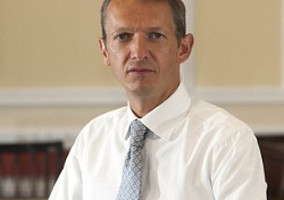Volunteering must become a more important part of public service delivery, the chief executive of NCVO has said in his annual letter to members today.
Sir Stuart Etherington called for a “national debate about the role of volunteering in the future of our public services”. He said that this did not just mean volunteers delivering more services, but a better understanding of how volunteering had a “unique value” all of its own.
He criticised Prime Minister Theresa May for a "hyperbolic" comment last week that "the cult of individualism has taken hold" in the UK, and said tens of millions of people gave time and money to charity.
He called on the charity sector itself to “renew its commitment to volunteering” and to make sure that volunteers were properly managed.
And he indicated he had little truck with arguments that volunteers should never replace paid staff.
“If we are to build a truly shared society – and the principle seems hard to object to whatever your political views – we cannot do so without volunteering,” he wrote.
“It is hard to conceive that we will be able to run public services in the future as we have in the past. We need a national debate about the role of volunteering in the future of our public services. And that debate has to be about more than simply delivering more publicly funded services.
“This isn’t a call for more government-backed volunteering schemes. We have excellent ones already. If anything, it is time for the sector to renew its commitment to volunteering.”
Replacement for paid staff
He also said he did not feel there should be limits placed on what volunteers should and should not deliver – a response to some people who say that volunteers are often used as a one-to-one replacement for paid staff.
“We will inevitably run into tricky questions,” he said. “When money is tight, tensions are invariably brought to the fore. Is it right for volunteers to do this role, or to run that service?
“My answer is that I don’t believe in putting limits on what volunteers can do, especially not based on ideological arguments about the role of the state.
“To conceive of volunteers’ dedication as a temporary cover for cuts until the magic spending tap can be turned back on and publicly funded workers take their place is not only unrealistic, it does them a great disservice, and it overlooks the particular distinctive value that volunteers bring. Indeed even were finances not a challenge, we should still be involving volunteers in public services because of the unique value of the contribution they make.
“We should encourage volunteering not just as a way to meet the goals of our own organisations, but because promoting participation in all its forms benefits our whole society.
Volunteer management
Etherington said it was important that the sector made a commitment to look after volunteers properly.
“We need to ensure that volunteering is managed well,” he said. That volunteers are adequately trained and supported. This must be a focus for all of us.
“This means investing in the support that volunteering needs, both human and technical. Ensuring we are creating flexible opportunities that fit with people’s lives. Acknowledging that managing volunteers is harder than managing staff and value those whose role this is.
“Ideally, we would make it as easy for someone to give their time as to give their money. It is no mean challenge but if we get just part of the way there we will be making a significant difference. Many are of course already doing excellent work in this area and I want to support and champion that.”
Strengthen governance
Etherington also warned that more work must still be done to strengthen the leadership and governance of the sector.
“We have not yet fully addressed the public’s concerns about fundraising, nor sufficiently strengthened governance within our sector,” he wrote. “We must forge ahead with change in these areas so that the public can look to us with confidence when we offer solutions to the challenges now faced by the world.”
Focus on the poorest
Etherington also wrote that while Theresa May’s focus would be on people who are “just about managing” the sector must ensure that she continues to think about “those who are simply not managing at all”, which is where the charity sector’s focus lies.
“They will not be forgotten by our sector, and we must ensure that they are not forgotten by government,” he wrote.
Related articles











